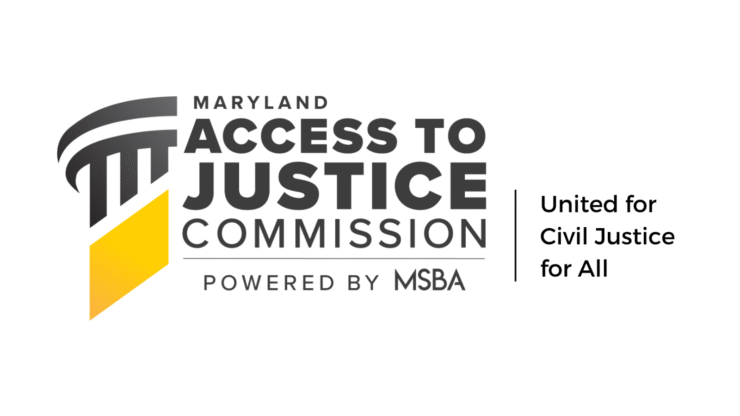A Victory for Tenants: Maryland’s Mold Protection Act and Access to Justice

Access to justice is more than about having a lawyer; it’s about ensuring all people, regardless of their income, have the power and ability to protect their fundamental rights. In Maryland, a new law, Chapter 539 (Senate Bill 856), also known as the Maryland Tenant Mold Protection Act, has taken a significant step toward improving this access for tenants by addressing the serious issue of mold in rental housing.
The Problem: Mold as an Access to Justice Issue
For too long, tenants, especially those in low-income housing, have struggled to compel landlords to address hazardous living conditions, such as mold. Mold and dampness are not just aesthetic issues; they are also linked to serious adverse health effects in humans, including asthma and allergic reactions.
Prior to the passage of the Maryland Tenant Mold Protection Act, when a landlord ignored a mold complaint, a tenant’s options were often limited and financially prohibitive. Pursuing legal action or even paying for mold testing and remediation is out of reach for many. This disparity creates a major access to justice gap, leaving tenants trapped in unsafe homes or forced to move with little recourse.
How the New Law Boosts Tenant Rights
The Maryland Tenant Mold Protection Act directly addresses this imbalance by establishing clear, enforceable standards and requirements for landlords. Here are the key provisions of the law:
1. Establishing Clear Responsibilities and Timelines
The Act mandates that a landlord shall perform a mold assessment and, if necessary, remediate mold within 15 days after receiving written notice from a tenant or a local enforcement agency regarding the detection of mold.
- If the initial assessment detects mold, the landlord shall perform mold remediation within 45 days after the assessment is completed, or within a reasonable time if the 45-day window is not feasible.
- This requirement removes the ambiguity and delay tactics that previously frustrated tenants seeking relief. It gives tenants a clear, documented timeline to hold landlords accountable.
2. Providing Essential Information and Education
The law requires the Department of the Environment and other state agencies (Maryland Department of Health, Department of Housing and Community Development, Maryland Department of Labor, and Department of General Services) to develop and update, as necessary, a centralized website and an informational pamphlet on mold remediation and dampness.
- Landlords must provide this pamphlet to every tenant in a rental unit at the time the lease or rental agreement is signed, or upon the tenant’s request.
- By ensuring tenants are informed about their rights and how to control mold growth in their unit, the law empowers them to take preventative measures and recognize when their landlord is failing to meet their obligations.
3. Setting Uniform Standards and Best Practices
The Act requires the Department of the Environment, in consultation with the Maryland Department of Health, the Department of Housing and Community Development, and the Department of General Services, to adopt regulations on or before June 1, 2027, establishing uniform standards for mold assessment and mold remediation.
- These regulations must establish standards for mold assessment, including inspection, air sample analysis, and analysis of bulk or surface mold samples, as well as for mold remediation in accordance with U.S. Environmental Protection Agency guidelines, while also reinforcing building codes.
- This provision ensures that the mold assessment and remediation work performed is legally sufficient and follows recommended industry guidelines and best practices. It prevents landlords from using subpar, ineffective fixes.
- This standardization also gives tenants a clear legal benchmark to use as evidence in any dispute, making it easier for them to prove a violation of the law.
A Step Forward for Housing Equity
By placing the responsibility for assessment and remediation squarely on the landlord with strict timelines and defined standards, the Maryland Tenant Mold Protection Act reduces the burden on tenants to prove a hazard or to pay for costly expert evaluations.
This is a vital piece of legislation that moves beyond simply allowing a lawsuit to creating the legal framework and educational tools necessary for tenants to secure healthy, safe housing without needing to immediately resort to expensive litigation.